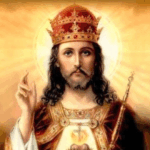 If you’ve grown up in the United States in the 20th or 21st century, you might miss how revolutionary the religious liberty in the Constitution is. Until 1791, no national government in human history had officially declared that there was no established religion and people were free to practice whatever religion, and almost every state had some official or semi-official religion. Even the French Revolution, at about the same time, established an official religion of reason rather than permit religious freedom.
If you’ve grown up in the United States in the 20th or 21st century, you might miss how revolutionary the religious liberty in the Constitution is. Until 1791, no national government in human history had officially declared that there was no established religion and people were free to practice whatever religion, and almost every state had some official or semi-official religion. Even the French Revolution, at about the same time, established an official religion of reason rather than permit religious freedom.
What brought this about? First, many of the original 13 Colonies were founded by groups in England who practiced a religion other than state-sponsored Anglicanism in Great Britain. The British government wouldn’t tolerate them at home but would let them live far away if their religion was that important. Second, Christianity is quite unique among world religions in that it is based on personal belief not corporate belonging. From the beginning, Christians lived in opposition to the official religion. Other groups would be fine under Roman rule because Romans would allow you to worship your god so long as you also worshiped their god – a fine proposition for a polytheist but not a Christian. Third, enlightenment philosophy, despite his defects in other areas, was able to see the religious liberty in a way that wasn’t previously clear.





